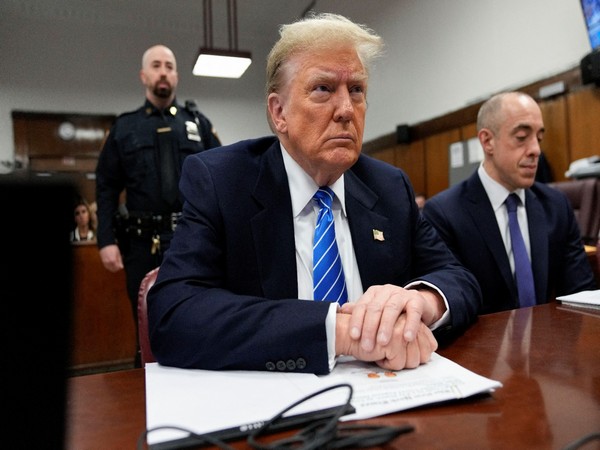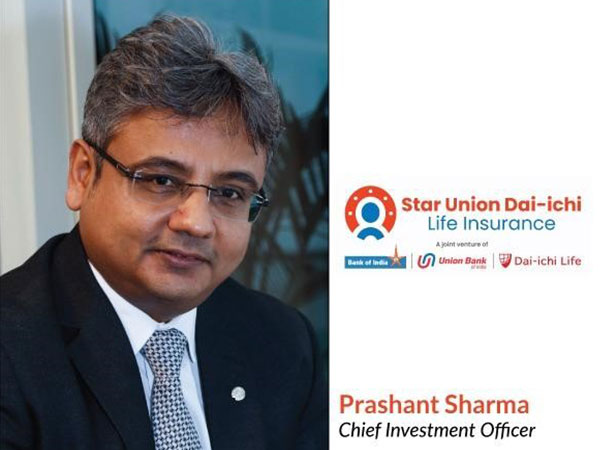What happens if Trump is convicted in hush-money trial?
May 28, 2024
New York [US], May 28: Thirty-four charges, 12 jurors, one often exasperated judge and a parade of witnesses.
After nearly five weeks, both the prosecution and the defence have rested in Donald Trump's history-making hush-money case.
Closing arguments will begin on Tuesday, and then the jury will start deliberations. After that, it is anyone's guess when they will return and what they'll decide.
But if he is found guilty on even one count - just one of a few possible outcomes - Mr Trump would become the first former US president with a criminal conviction, and the first major party candidate to run for the White House as a felon.
Here are some key issues to consider if a guilty verdict is delivered.
What happens with a guilty verdict?
Mr Trump has been free on bail throughout the trial. If the verdict is guilty, he will probably still be able to leave the court as a free man until Justice Juan Merchan schedules a sentencing hearing.
The judge has several factors to consider in sentencing, including Mr Trump's age (77), lack of previous conviction and possibly his violations of the court's gag orders.
The sentence could involve a fine, probation or supervision, or possibly prison time.
Mr Trump would almost certainly appeal against a guilty verdict, a process that could take months or even longer.
His legal team would then face the Appellate Division in Manhattan, and possibly the Court of Appeals.
This all means it would be highly unlikely that Mr Trump will leave the court in handcuffs, and he would be expected to remain free on bail while he appeals.
What would be the grounds for appeal?
The evidence of adult film star Stormy Daniels, whose alleged sexual encounter with Mr Trump is at the heart of the case, could be one reason.
"The level of detail that was provided [by Ms Daniels] is really not necessary to the telling of the story," said Anna Cominsky, a professor at New York Law School.
"On the one hand, her detail makes her credible and as a prosecutor, you want to provide enough detail so the jury believes what she has to say. On the other hand, there's a line, where it could become irrelevant and prejudicial."
Mr Trump's defence team twice called for a mistrial during Ms Daniels' testimony, motions that were denied by the judge.
Could Trump go to prison?
It is possible, though highly unlikely, that Mr Trump would serve time behind bars in the event of a guilty verdict.
The 34 charges he faces are all class E felonies in New York, the lowest tier in the state. Each charge carries a maximum sentence of four years.
There are several reasons why Justice Merchan could choose a lesser punishment, including Mr Trump's age, his lack of previous convictions, and the fact that the charges involve a non-violent crime.
There is also a question of practicality. Mr Trump, like all former presidents, is entitled to lifelong protection from the Secret Service. This means that some agents would need to protect him in prison.
Even so, it would in all likelihood be extremely difficult to run a prison system with a former president as an inmate. It would be a huge security risk and expensive to keep him safe.
"Prison systems care about two things: security of the institution and keeping costs down," said Justin Paperny, director of the prison consulting firm White Collar Advice.
With Mr Trump, "it would be a freak show. no warden would allow it", he said.
Could he still run for president?
Yes. The US Constitution sets out relatively few eligibility requirements for presidential candidates: they must be at least 35, be a "natural born" US citizen and have lived in the US for at least 14 years. There are no rules blocking candidates with criminal records.
But a guilty verdict still could sway November's presidential election. A poll from Bloomberg and Morning Consult earlier this year found that 53% of voters in key swing states would refuse to vote for the Republican if he were convicted.
Another poll, from Quinnipiac University this month, showed 6% of Trump voters would be less likely to vote for him - consequential in such a tight race.
Could he pardon himself?
No. Presidents can issue pardons for those who have committed federal offences. The hush-money case in New York is a state matter, meaning it would be out of Mr Trump's reach if he were to become president again.
The same is true for Mr Trump's case in Georgia, where he has been accused of criminally conspiring to overturn his narrow defeat by
President Joe Biden in the state during the 2020 election. This case is currently tied up in appeals.
Pardon powers are unclear for Mr Trump's two federal cases - one concerning the alleged mishandling of classified documents, and the other on conspiring to overturn the 2020 election.
In the first, a Trump-appointed judge in Florida has indefinitely postponed the trial, saying setting a date before resolving questions about evidence would be "imprudent".
The second outstanding federal case was also delayed while an appeal from Mr Trump played out.
Neither is likely to take place before the November election, but even if they did, constitutional scholars disagree on whether a president's pardon power includes himself. Mr Trump could be the first to try.
Source: Fijian Broadcasting Cooperation








